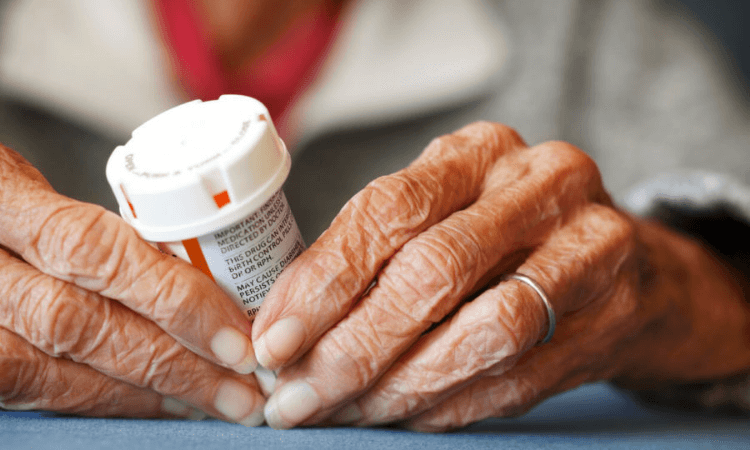
Does Trazodone Count As A Controlled Substance?
We should consider trazodone a controlled substance. This means that one can only obtain it with a prescription. If you do not have a prescription for trazodone, do not take it. Only take medications prescribed to you. Do you have a trazodone prescription? Take it exactly as directed. Consume the proper dose in the proper manner. Neither give away nor sell, any of your medication.
But, you likely still have questions. In this article, Recovery In Tune intends to answer the following:
- What is trazodone?
- What is trazodone used for?
- Does trazodone have side effects?
- Other treatment options would trazodone work with.
- If I still have questions about trazodone?
Trazodone Explained
Trazodone belongs to a class of drugs called serotonin receptor antagonists and reuptake inhibitors (SARIs). SSRIs help stabilize the amount of serotonin in the brain. Serotonin influences our temperament and moods. Manufacturers formerly marketed trazodone the brand names Desyrel, Desyrel Dividose, and Oleptro. As of now, you may find it under its generic name. Typical doses range from 50mg – 300mg.
What Is Trazodone Used For?
Healthcare providers use trazodone primarily to treat the major depressive disorder. One might also receive trazodone to help with insomnia or anxiety disorders. Other off label uses include:
- Obsessive compulsive disorder (OCD)
- Substance use disorders
- Post-traumatic stress disorder (PTSD)
- Sexual dysfunction
- Recovering from an ischemic stroke
What Is Depression?
“Depression” might sound simple. But it has become an umbrella term for a variety of conditions. Depression involves more than sadness. It may share some similarities with grief, as after the death of a loved one. However, grief and sadness may give way to depression. Depression feels like a nagging sense of loss or disgust. It follows you like a shadow. In fact, the amount of light we receive may influence depression.
The National Institute of Mental Health recognizes several different kinds of depression:
- Dysthymia: also called persistent depressive disorder
- Postpartum depression: a severe form of depression that occurs after giving birth
- Psychotic depression: a form of depression linked to hallucinations and delusions
- Seasonal affective disorder: strikes with the onset of winter, can lead to decreased time with loved ones, less motivation, and sleeping too much
- Bipolar disorder: marked by sudden shifts in mood, ranging from excitement (mania) to despair
What About Major Depressive Disorder (MDD)?
Trazodone helps treat the major depressive disorder. People with depression have a lasting sense of loss. No matter what they do, this feeling persists. To properly express it, someone with depression might not even use words like “sad.” More often, major depressive disorder feels like the absence of feeling. Major depression numbs a person. It traps them in a void where they feel nothing. Perhaps not even pain.
Specific symptoms of the major depressive disorder include:
- An unending feeling of emptiness
- Inability to fall (or stay) asleep
- Sleepiness during the day, regardless of how much one sleeps
- Extreme changes in weight (loss or gain)
- Dissatisfaction with formerly enjoyable activities
- Suicidal ideation
Does Trazodone Have Side Effects?
Like all medications, trazodone does have side effects. As mentioned earlier, always stick to your prescription regimen. Do not deviate from your healthcare provider’s instructions. Adhering to your provider’s recommendations can help minimize side effects.
That said, side effects for trazodone include:
- Headaches
- Nausea and vomiting
- Sleepiness
- Sweating
- Blurry vision
What Other Treatment Options Would Trazodone Work With?
Besides trazodone, the major depressive disorder has other treatment options. Think of medication as a single tool in a toolbox. One need not neglect this tool. Situations exist where medication becomes incredibly helpful. However, it ought not to be the only tool in one’s toolbox. Consider using treatment methods like these in conjunction with trazodone.
Light Therapy
Lack of sunlight can contribute to depression. Inadequate sunlight affects how we view the world. But not only that. Lack of sunlight physiologically influences both our eyes and brains. One non-medicinal treatment for major depressive disorder involves white light exposure. Healthcare providers refer to this as light therapy.
Cognitive Behavioral Therapy
We usually take our thoughts for granted. Rarely do we evaluate them. Cognitive behavioral therapy (CBT) teaches us to do just that. One does not have to identify oneself by one’s depressive thoughts. Cognitive behavioral therapy can help alleviate some of the symptoms of major depressive disorder.
What If I Still Have Questions About Trazodone?
Perhaps you’d like more information about the controlled substance known as trazodone. You’ve read this far, but you find you still have questions. At Recovery In Tune, we want to empower our clients with information. With information, our clients can take meaningful, productive steps toward lasting recovery.
If you or someone you love struggles with depression, let us know. You came to this page for a reason. Call us now. Not ready to talk? No worries. Drop us a quick email.